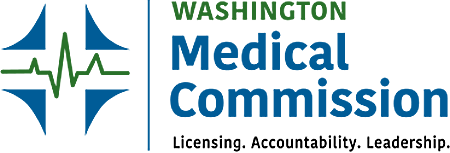Optimizing Care for People Experiencing Homelessness
This webinar was originally recorded on Thursday January 18, 2023 and is set to expire on January 19th 2024
Slide Deck
Webinar Recording
Claim CME Credit
In this webinar, Dr. Enzian will identify current trends in behavioral and physical health for people living with homelessness. Optimizing care for people experiencing homelessness requires a comprehensive approach that addresses the unique challenges faced by this population. These challenges include:
- Lack of access to healthcare: People experiencing homelessness often have difficulty accessing traditional healthcare services due to barriers such as lack of insurance, transportation, and childcare.
- Complex health needs: People experiencing homelessness are more likely to have chronic health conditions, mental illness, and substance use disorders.
- Social determinants of health: People experiencing homelessness are also more likely to experience other social determinants of health, such as poverty, food insecurity, and trauma.
Educational Objectives
Upon completion of this educational activity, participants should be able to:
- Discuss health issues related to living with homelessness.
- Identify the barriers to accessing healthcare for people experiencing homelessness.
- Integrate successful strategies for optimizing care for people experiencing homelessness into their practice.
Target Audience
This activity is designed to educate commission members, practitioners, medical regulatory staff, and the public.
Speaker Biography
Leslie Enzian, MD
Dr. Enzian is a primary care physician and addiction medicine specialist who has worked at Harborview Medical Center with people experiencing homelessness for the past 28 years. She is the medical director of Edward Thomas House Medical Respite Program that provides care for people with insecure housing who are recovering from acute illness or injury. She also works as a Capacity Management Physician, assisting with hospital throughput, inpatient disposition planning and optimizing transitions of care. Dr. Enzian serves as a Governance Council Member for the Seattle-King County Public Health Department Health Care for the Homeless Network.
Continuing Medical Education
Accreditation Statement
This activity has been planned and implemented in accordance with the accreditation requirements and policies of the Accreditation Council for Continuing Medical Education (ACCME) through the joint providership of the Federation of State Medical Boards, the Washington Medical Commission, and the Washington State Department of Health. The Federation of State Medical Boards is accredited by the ACCME to provide continuing medical education for physicians. The Federation of State Medical Boards designates this live activity for a maximum of 1.0 AMA PRA Category 1 Credit™. Physicians should claim only the credit commensurate with the extent of their participation in the activity.
Credit Designation Statement
The Federation of State Medical Boards designates this internet enduring activity for a maximum of 1.0 AMA PRA Category 1 Credit™. Physicians should claim only the credit commensurate with the extent of their participation in the activity.
Course Director
Morgan Barrett, MD
Washington Medical Commission
Commercial Support
This learning activity is not funded by any commercial entity.
Disclosure Declaration
As an organization accredited by the ACCME, the Federation of State Medical Boards (FSMB) requires that the content of CME activities and related materials provide balance, independence, objectivity, and scientific rigor. All faculty, planners, and others in a position to control continuing medical education content participating in an accredited continuing education activity are required to disclose all financial relationships with ineligible companies. Ineligible companies are organizations whose primary business is producing, marketing, selling, re-selling, or distributing healthcare products used by or on patients. Faculty (authors, presenters, speakers and planners) are encouraged to provide a balanced view of therapeutic options by utilizing either generic names or other options available when utilizing trade names to ensure impartiality.
Faculty members are asked to disclose all financial relationships they have had in the past 24 months with ineligible companies regardless of the potential relevance of each relationship to the education and of the amount. The FSMB has implemented a mechanism to identify and resolve all conflicts of interest prior to the activity. The intent of this policy is to identify potential conflicts of interest so participants can form their own judgments with full disclosure of the facts. Participants will be asked to evaluate whether the speaker’s outside interests reflect a possible bias in the planning or presentation of the activity. The speakers, course director, and planners at the Federation of State Medical Boards, have nothing to disclose
Disclosure of Unlabeled Uses
This educational activity may contain discussion of published and/or investigational uses of agents that are not approved by the U.S. Food and Drug Administration. For additional information about approved uses, including approved indications, contraindications, and warnings, please refer to the prescribing information for each product, or consult the Physicians’ Desk Reference.
Faculty and Staff Disclosures
No speaker or persons in control of content reported intent to reference unlabeled/unapproved uses of drugs or products.



